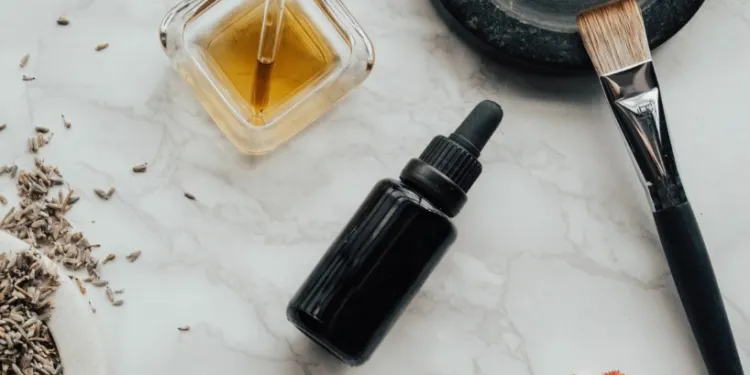There are many uses for hemp beyond its uses as a natural substitute for cotton. This versatile crop is a biofuel and can be used to make batteries and paper. This article looks at the benefits of this product and its many uses.
Hemp is a natural substitute for cotton
Hemp is an environmentally friendly and safe plant that uses half as much water per growing season as cotton. It grows in any type of soil and needs no pesticides or herbicides.
This product also has many uses, including apparel and paper. It is also useful as an edible, as the seeds and leaves are high in Omega-3s. Click here for more information about the benefits of omega-3s. As a bonus, hemp doesn’t need any special treatments to remain soft and elastic.
Besides being environmentally friendly, this product is much faster to grow than cotton. It grows to maturity in just three months. It also requires less water, which makes it more sustainable than cotton.
Furthermore, this product is naturally resistant to pests, which means no need for chemical pesticides to protect the plant. This makes this product one of the greenest crops. Cotton is also known as the softest fabric, but its fiber weakens after a while and is prone to ripping.
While organic cotton is considered to be better for the environment, it’s also more expensive than conventional cotton. You can also choose to buy fiber that has been certified organic by a third-party organization. However, hemp is more expensive than cotton, so it’s often blended with organic cotton. In the fashion world, this product has been marginalized due to its association with marijuana, which is not the same plant, though the two look alike.

It can be processed into biofuel
In recent years, hemp has gained considerable attention for its potential as a sustainable alternative fuel. Its fibers, known as lignin, are capable of being processed into bio-oil, bio-char, synthesis gas, and phenol.
Though lignin processing has progressed over the last few decades, there are still several obstacles that need to be overcome before the product is commercialized. Despite its limitations, this product can compete with petroleum and other fossil fuels.
Processing began around 1853, when chemists first conducted experiments that involved transesterification of vegetable oils. It was not until 1893 that a working diesel engine powered by this product was produced, which won the highest prize at the Paris Exhibition. The resulting ethanol fuel also provided an excellent lubricant for diesel engines, extending the life of the fuel.
Several government agencies concluded that biodiesel meets the requirements of the Energy Policy Act.
Hemp is used to produce ethanol and methanol. Typically, ethanol makes up about 10% of conventional gasoline, while methanol is much cheaper. The two substances are also used in racing cars around the world.
The Energy Policy Act of 1992 recognized ethanol as a promising alternative fuel. Click the link: https://afdc.energy.gov/laws/key_legislation#:~:text=The%20Energy%20Policy%20Act%20(EPAct)%20of%201992%20(Public%20Law,renewable%20energy%2C%20and%20energy%20efficiency for more information about energy-related legislation.
In the same way, this product can be processed into biodiesel through a process called cellulolysis. The cellulose in the plant stalks is converted into sugars by enzymes. Once converted into biodiesel, fuel is ready to use in vehicles and biomass power plants.
It can be used to make batteries
Hemp can be used to create a new type of battery called a supercapacitor. These batteries are known to rapidly release their charge and thus are perfect for machines that require bursts of energy to operate. These batteries can even replace traditional lithium ion batteries in the future. However, these batteries are not as efficient at storing large amounts of energy as lithium ion batteries.
Industrial-scale hemp is used to produce battery material. However, the waste produced from plant cultivation is usually discarded as bast fibre. In a study, scientists found a way to recycle bast fibre into supercapacitors. These batteries are used for electric cars and other machines that need short bursts of power. The electrodes of these batteries need to be extremely high surface area to maximize energy retention.
Unlike conventional lithium-ion batteries, this product can also be used to make supercapacitors. These batteries can absorb regenerative energy and discharge the entire load very quickly. Although hemp cannot replace lithium-ion batteries, it can help electric vehicles run more efficiently.
For now, there is no evidence that this product can replace lithium-ion batteries, but it can work with other electric powered machinery. So, if you are thinking of replacing your car batteries, this product is a viable option.
It can be ingested
Hemp can be ingested in several forms. It can be applied to the skin, ingested, or even used as a topical treatment.
Although this product has a low THC content, it still contains large amounts of CBD. This makes this product a great option for those who wish to get the health benefits of the plant without the psychoactive effects. Visit the hemp collect site for more information. If you’re considering trying this oil, it’s best to consult your physician first before beginning any treatment.
Though there are no known risks associated with ingesting hemp, it’s important to remember that hemp and cannabis are not the same thing. Although hemp is legal in the U.S., it contains trace amounts of THC. Moreover, hemp seed oil is generally considered safe to ingest, although you should avoid ingesting it if you’re taking blood clotting medicines. Furthermore, hemp seeds have a mild nutty flavor, like unsalted sunflower seeds.

